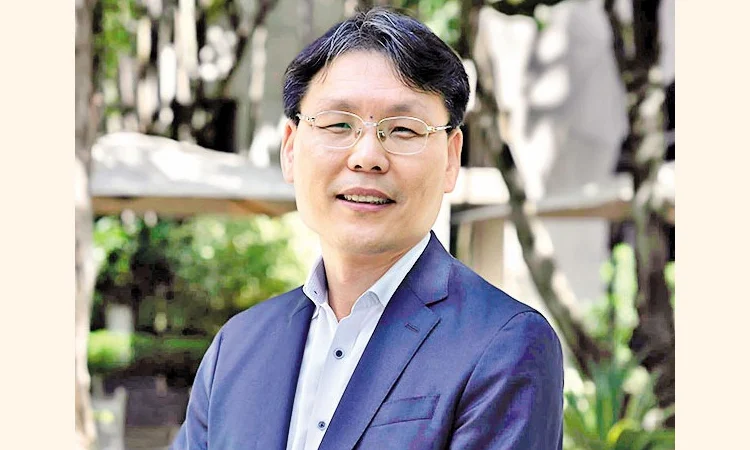News Flash
News Flash

DHAKA, April 9, 2025 (BSS) – Asian Development Bank (ADB) Country Director for Bangladesh Hoe Yun Jeong today said that Bangladesh must diversify its products and markets in the medium and long-term perspective to brave the impacts of the US reciprocal tariff.
“There are possible ways to mitigate the potential downfall. Yes, Bangladesh needs to consider proactively engaging and negotiating with the US while this has already begun,” he said.
The ADB Country Director was responding to queries of reporters during the launching of the Bangladesh chapter of the ADB’s latest report, the Asian Development Outlook (ADO), April, 2025 held at its Bangladesh Resident Mission office in the capital’s Agargaon area.
The United States has already announced a 37 percent tariff on imports from Bangladesh as part of President Donald Trump’s sweeping new "Reciprocal Tariffs" policy.
According to a chart published by the White House, the US government claims Bangladesh effectively imposes a 74 percent tariff on American goods. In response, a 37 percent "discounted reciprocal tariff" will now be levied on Bangladeshi products entering the US market.
In response to such move, Chief Adviser Professor Muhammad Yunus has already sent a letter to US President Donald Trump requesting him to postpone the application of a 37 percent tariff on Bangladeshi products in the US market.
In the letter, Prof Yunus requested US President Donald J Trump to postpone the application of US reciprocal tariff measures on Bangladesh for three months to allow the interim government to smoothly implement its initiative to substantially increase US exports to Bangladesh.
Besides, Commerce Adviser Sk. Bashir Uddin also sent a letter to USTR stating that the government would facilitate the export of 100 more products to Bangladesh at zero tariff to reduce the trade deficit with the United States.
The ADB Country Director said that negotiating with the US is important and also a short-term measure, but more important is that Bangladesh must diversify its markets and products for exports.
Going forward, he said Bangladesh can also take the opportunity to rationalize its own import tariff structure and reform its non-tariff barriers considering its tariff regime.
He said, “These types of tariff reforms are applied not only to the US but also to other countries.”
The ADB Country Director went on saying, “So, these are the broad measures that the government of Bangladesh needs to take into account as potential mitigation for US tariff,” he added.
Jeong also noted that it is too early to tell about the exact scale of impacts on the Bangladesh economy by the US tariff.
“We’ll continue to conduct analytical work on the impact and there will be further provided in July ADO update,” he added.
Acknowledging that Bangladesh is facing multiple economic challenges, the ADB Country Director told another questioner that the most urgent challenge might be the persistently high inflation, which erodes purchasing power and discourages investment.
“In our view, tackling high inflation rate will be a tough policy agenda going forward,” Jeong said, adding that the country also needs to address supply constraints as high inflation is also related to supply side disruptions.
“To address such issues, the government needs to improve supply chain, reduce logistics cost and invest in energy resources,” he added.